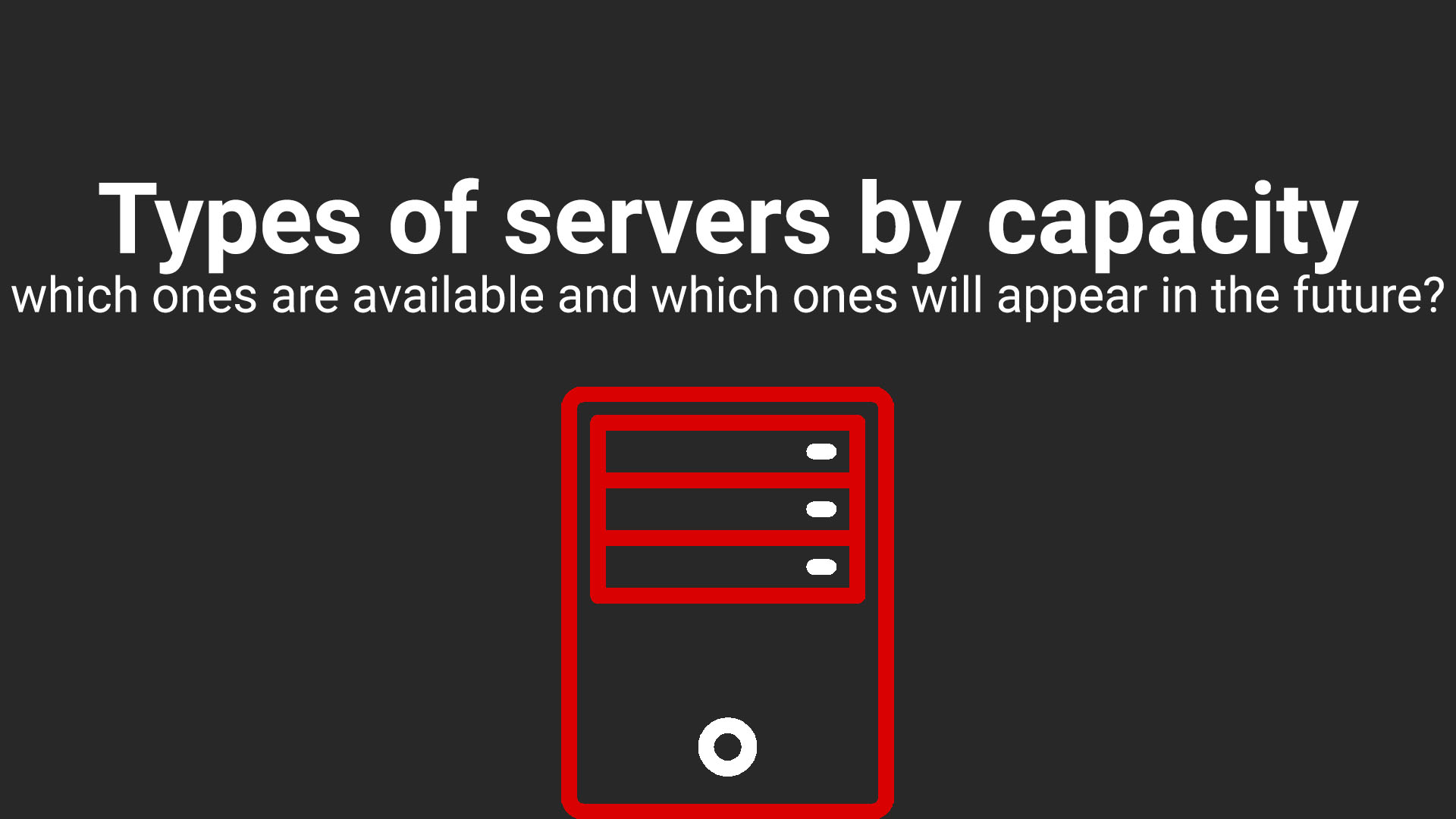Types of servers by capacity: which ones are available and which ones will appear in the future?
- February 12, 2025, 01:23:47

Modern technologies require powerful computing resources, and servers are the foundation of the Internet, cloud services, artificial intelligence, and large enterprises. However, not all servers are the same in terms of capacity. Depending on the needs of the business, they may vary in characteristics, capabilities, and scalability. There are incredibly powerful servers that cost companies thousands of dollars a year, and there are servers that even a lone freelancer who needs a server to test his project can afford.
In this article, we will look at what servers are in terms of capacity, how they work, what trends await the server industry in the future, and why choosing the right server is important for business.
What are the servers in terms of capacity?
Servers can be classified by their power level, which is determined by the number of processors, RAM, storage capacity, and other characteristics.
1. Basic Servers (Entry-Level Servers)
Power: Low
- Processors: 1-2 cores
- RAM: 2-8 GB
- Storage: HDD/SSD up to 1 TB
They are used for small websites, personal blogs, small office applications, and local file servers. As a rule, they are in great demand among freelancers, university students who have projects there, startups, etc.
They are economical, but have limited computing capabilities and poor fault tolerance. Servers of this type include VPS and Hourly Cloud, which are paid once a month or hourly.
2. Mid-Range Servers (Mid-Range Servers)
Power: Medium
- Processors: 4-16 cores
- RAM: 16-64 GB
- Storage: SSD up to 10 TB
Suitable for small companies, online stores, corporate applications and databases. You can also place applications on them that need a powerful data processing system.
They have good performance and the ability to scale. Also, their prices are usually not particularly high, and because of this, you or your company can afford them without worrying about the financial side.
3. High-performance Servers (Enterprise-Level Servers)
Power: High
- Processors: 32-128 cores
- RAM: 128 GB - 1 TB
- Storage: NVMe SSD up to 100 TB
They are used by large enterprises, cloud providers, and data centers. It is with the help of these servers that a large amount of data can be processed, game servers can be located, and much more.
They support virtualization, cloud technologies and big data processing, of course they are already significantly more expensive in price and users or companies spend a lot of money on server data, but they usually pay off because they host really important data/projects.
4. HPC Servers (High-Performance Computing)
Power: Extremely high
- Processors: hundreds of cores, GPU accelerators
- RAM: from 1 TB to several PB
- Storage: NVMe SSD arrays + distributed storage
They are used for scientific computing, artificial intelligence, machine learning and modeling. On the basis of such servers, AI from the ChatGPT category, DeepSeek, etc. are built. They are
used in the aerospace industry, medicine, finance, large analytical projects, such servers are used by NASA.
What technologies will the servers of the future use?
The server industry will undergo major changes in the coming years.
Quantum computing – the advent of servers powered by quantum processors will speed up data processing thousands of times.
Energy efficiency – new processors and cooling systems will reduce server power consumption.
Cloud and distributed servers – classic data centers are gradually being replaced by cloud solutions.
Automation and AI servers will be able to independently analyze the load and scale in real time.
Advantages of choosing the right server for business
- High performance – faster query processing and improved performance of web applications.
- Stability and fault tolerance – servers with high uptime allow businesses to operate without interruption.
- Security is the protection of data from cyber attacks, information loss and hacking.
- Scalability is the ability to expand capacity as the business grows.
Conclusion
The choice of server depends on the business objectives: small sites can run on basic servers, corporate companies require mid–range servers, and large projects require high-performance server solutions.
The future of server technologies lies in quantum computing, distributed clouds, and automated AI systems, leading to even more powerful and efficient computing systems.
Why choose MivoCloud?
MivoCloud offers:
- Cloud servers with high performance
- DDoS protection and backup
- Flexible tariff plans for any business
- Powerful dedicated servers and VPS solutions
- Round-the-clock technical support
With us, your business will always run on fast, secure and reliable servers!


